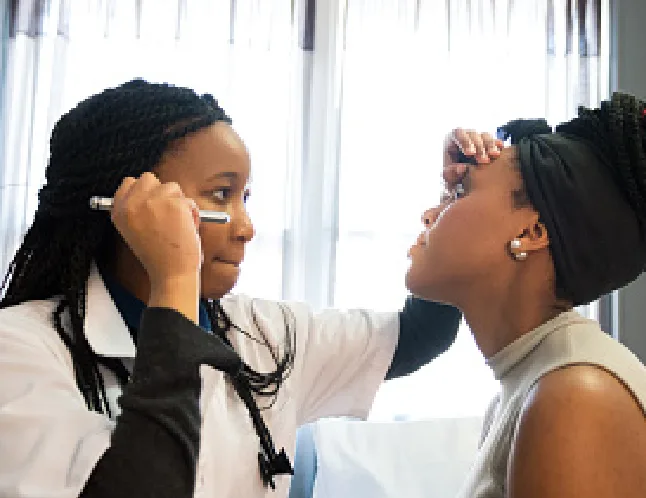Talk to your healthcare professional (HCP)
Whether you start your quest for a genetic diagnosis with a family doctor, pediatrician, ophthalmologist, retina specialist, genetic counselor, nurse, or other medical professional, it is important to think about the questions you have, write them down, and bring them to your appointment.
Here are some common questions that people may have as they get started:

IRDs are a group of rare eye disorders caused by gene mutations and can result in vision loss or blindness.
IRDs include degenerative and congenital eye diseases. Degenerative eye diseases include retinitis pigmentosa (RP), choroideremia (CHM), or Stargardt disease (STGD).
Congenital conditions, which are present from birth, include Leber congenital amaurosis (LCA) or cone-rod dystrophy (CRD).
Talk to your HCP about genetic testing options.
Your HCP can provide information and guidance about genetic testing.
He or she can also help you interpret results. If you do not have a HCP that can support your genetic testing needs, check out the Find A Provider list to find one nearest you.
Select a discussion guide to help get the most from your conversations with HCPs

COMMUNITY INSIGHTS
Two moms—one who has retinitis pigmentosa (RP), and one who is raising a daughter with a form of Leber congenital amaurosis (LCA)—talk about the importance of genetic testing.

Other tips for discussing genetic testing with your HCP
- It may be helpful to bring a friend or family member with you who can take notes or help you remember specific information and answers you receive from your HCP.
- Do not hesitate to ask a genetic counselor who specializes in eye diseases to clarify information you don’t understand about genetic information or the genetic testing process.
- Some HCPs may not be as familiar with genetic testing for IRDs—directing them to www.EyeWant2Know.com for context about your desire to pursue genetic testing may be helpful.
